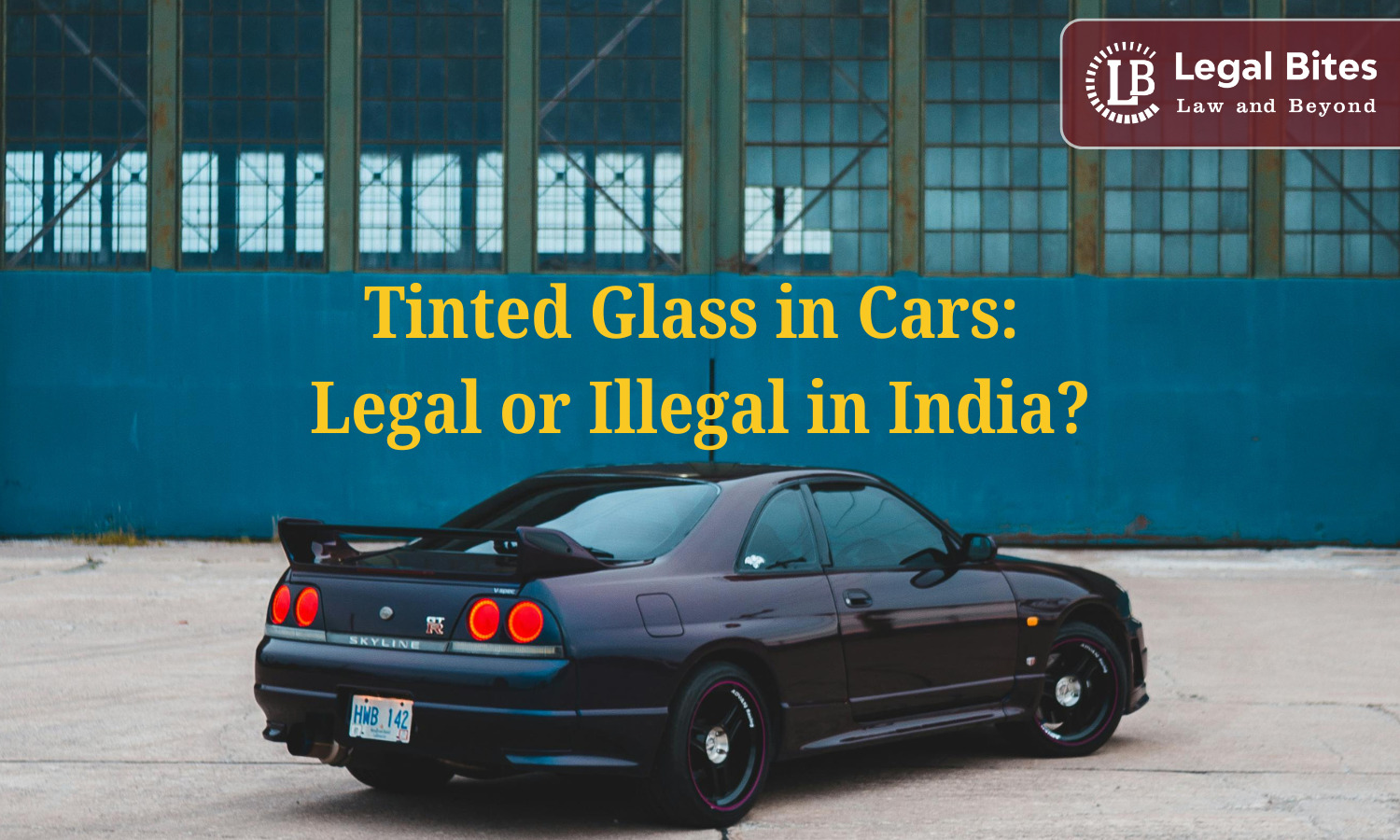
Jammu & Kashmir High Court reaffirmed the Supreme Court’s ruling in Avishek Goenka v. Union of India (2012), which banned the use of black films or tinted glasses on vehicle windows below the prescribed Visual Light Transmission (VLT) limits. While the Supreme Court’s directions prohibited such use, they did not provide for seizure or penalties.
However, the J&K High Court had earlier directed the seizure of non-compliant vehicles through a public notice. In this judgment, the Court clarified that although the Motor Vehicles Act, 1988 does not expressly provide for seizure due to tinted glass violations, such vehicles may be dealt with under the analogy of Section 207, allowing seizure, complaint to the Magistrate, and conditional release.
It ruled that all future applications for release of seized vehicles must be made before the Magistrate, who may order release upon verification and levy of a fine (₹10,000 for the first offence, ₹20,000 for repeat offences). This approach balances judicial directives with statutory enforcement, ensuring accountability while avoiding unnecessary burden on the High Court.
What is the Fine for Tinted Glass in Cars in India?
Using tinted glass in violation of the Regional Transport Office (RTO) regulations can lead to fines and legal consequences. Authorities strictly enforce these rules, and the penalties increase with each repeated violation.
Penalties for Violation
First Offence: ₹100 fine
Second Offence: ₹300 fine
Third Offence and Subsequent Violations: ₹300 fine plus possible suspension of the driver’s license
Although the initial fines may seem modest, repeated violations can lead to stricter enforcement actions, including suspension of your driving privileges. In many cases, traffic police may also order the immediate removal of illegally applied tints during roadside checks
Enforcement Trends in 2024–2025
Mangaluru (May–June 2025)
- Over 700 vehicles fined in two weeks.
- Police conducted on-the-spot inspections and removed films.
- Fines ranged from ₹500 to ₹1000 per vehicle.
Mysuru (May 2025)
- Traffic police launched an awareness campaign.
- First-time violators were fined ₹500, and tints were removed instantly.
Bhubaneswar (February 2025 onwards)
- Violations prosecuted under the Urban Police District Act, with penalties up to ₹1,000.
- These drives show a clear nationwide intention to strictly enforce rules on tinted glass.
States like Delhi, Karnataka, West Bengal, and Tamil Nadu levy penalties of ₹500 to ₹2000, sometimes even more, for repeated violations. Some jurisdictions have the authority to impound vehicles with tinted films or demand immediate removal.
Why Is Tinting Restricted?
1. Law Enforcement
Dark tints can obscure the view inside a vehicle, making it difficult for police to detect:
- Illegal activities
- Concealed weapons
- Drunk or distracted drivers
2. Road Safety
Heavy tinting can impair driver visibility, especially during:
- Night-time driving
- Foggy or rainy weather
- Parking and reversing
This increases the likelihood of accidents.
3. Criminal Activities
There have been multiple reports of:
- Kidnapping, assault, or theft using darkened vehicles.
- Women and children being transported unnoticed.
- Fake identity or crime concealment during transit.
Insurance Impact
Although most vehicle owners are unaware, illegal modifications can:
- Lead to denial of insurance claims in the event of an accident.
- Cause reduction in claim amount if the insurer proves breach of law.
- Affect your vehicle’s resale value, especially if RTO papers note non-compliance.
For example, damage to windshields or glass with tinted film might not be covered if the tint is not legally approved.
Legal Alternatives for Comfort and Safety
If you want sun protection without legal trouble:
Factory-Compliant Tints
Opt for vehicles with original manufacturer-installed tinted glass meeting VLT standards.
Certified Transparent Films
Some new-age films claim to maintain 70–90% VLT while reducing IR/UV. However, these must be:
- Certified
- Installed by an authorised centre
- Documented and RTO-verified
Sunshades and Parking Accessories
- Use removable magnetic shades while parked.
- Use windshield reflectors during extreme summers.
- Install automatic blinds inside the vehicle (only for parked use).
- These don’t breach visibility norms and are removable.
Compliance Tips for Car Owners
- Verify your car’s VLT with a certified light meter (available with most RTOs).
- Do not accept aftermarket film installations, even if the vendor claims they are “RTO approved.”
- Carry RTO documents proving your glass complies, especially during traffic stops.
- Avoid installing tints after purchase, even from a showroom unless they are manufacturer-fitted.
- Stay updated with local traffic advisories—many cities conduct drives every month.
- Educate drivers or chauffeurs, if you own commercial or transport vehicles.
Indian law permits only clear or compliant factory-installed tints. Any aftermarket installation, regardless of its light transmission claim, is illegal as per the Supreme Court. Enforcement has increased significantly across Indian cities, and penalties can extend beyond fines to include vehicle impoundment and license suspension.
If you need sun protection, always opt for legal alternatives. Check the VLT of your car’s glass and stay informed of local traffic enforcement updates. It’s not just about avoiding a fine—it’s about ensuring safety, legality, and peace of mind.
References
[1] Central Motor Vehicles Rules, 1989
[2] Avishek Goenka v. Union of India, Writ Petition (Civil) No. 265 of 2011
[3] Dr. Davinder Singh Jasrotia & Ors. v. State of J&K & Ors., PIL No. 25 of 2011
[4] Cops to Crack Down on Tinted Vehicle Windows, Available Here
[5] Mysuru City Police Enforce Ban on Car Window Tinting to Enhance Public Safety, Available Here
[6] Is car window film legal in India?, Available Here
Important Link